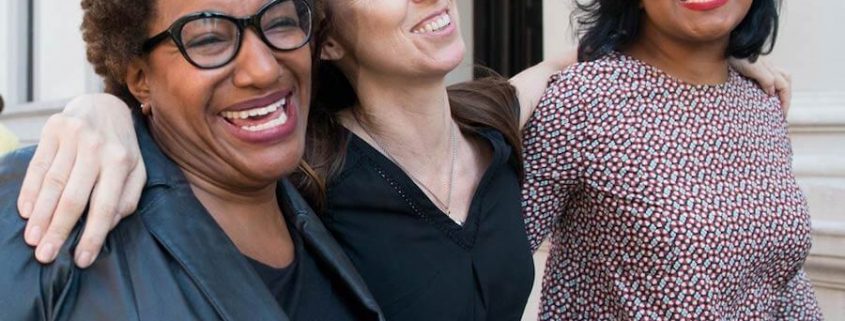Are Women Better Therapists for Women?
Samantha visited my psychotherapy office for a consultation. She was frustrated with her employer and witnessed men being promoted while she wasn’t even considered for new positions. Fearing a backlash against her from her boss (a man) and her colleagues (also men) if she spoke up, she started to experience panic attacks and insomnia.
As I listened to her story, I noticed that her professional world was filled with men. In fact, her previous therapists were men. I wondered, “Would she benefit more from working with a strong female therapist?” So I asked her. She immediately expressed relief. “I’ve been thinking that from the moment I walked into your office.”
BeHer Psychotherapy for Women
I referred her to BeHER Psychotherapy, an organization of female therapists dedicated exclusively to working with women. I sat down with Diana Gasperoni, founder of BeHER and the BeHER Circle Program. (See “How Group Empowers You in Relationships”) Here’s what she had to say:
Q: What inspired you to create BeHER Psychotherapy?
A mid-life crisis. I was approaching 50 and freaking out. As a woman, I found myself looking for a place where I could get feedback from other women. I wanted to be heard, validated and supported. I couldn’t find the right fit so I created it.
Q: What makes BeHER Psychotherapy unique?
BeHER is different from a women’s support group or a girls’ night out with friends. A group of 8 women meets weekly for 8 weeks and is lead by a BeHER Circle Facilitator. The facilitator is a graduate of the group herself and has been on the other side of the chair so she has a full understanding of being in a BeHER Circle. She also is trained in how to empower women by strengthening their unique identities.
Women in the circle develop their original voices and enhance their relationships. They also gain an understanding of negative thought patterns that hold them back.
Q: You mentioned that BeHER Psychotherapy was inspired by your own journey and training. In what way?
I come from a big family and being heard was challenging. When I went out into the world noticed I struggled with the same issues that I did in my family. So I sought out a group therapy experience for myself. In the group, I really came to life. I want to share this experience with other women.
Q: Do you think a female therapist is more sensitive to women’s issues?
I do. I have had amazing experiences with male therapists. However, in my work with a female therapist, I found that I had more courage to talk about relationships, sex, and motherhood with complete freedom. I felt held and understood with a female therapist in a way that I never had with my male therapist.
Q: Name some ways a female therapist could be more empowering to women?
In a world of #metoo and #timesup, a good female therapist can immediately identify with her female patients’ struggles. Her patients are also given an opportunity to be understood and embraced by another woman. Too often, women judge themselves harshly and compete with each other. The female therapist/female patient relationship helps reverse these negative tendencies and inspire more positive interactions.
Q: Do you see many women in Samantha’s position? How does BeHER Psychotherapy help?
Samantha’s situation is quite common. Women that work in male-dominated fields face obstacles such as the gender pay gap and being objectified. The BeHER Circle Program helps women like Samantha develop greater self-confidence and become more assertive. In a BeHER Circle, Samantha would gain the courage she needs to break through gender stereotypes and male-centric social norms.
I founded BeHER Psychotherapy to help women thrive and break social patterns rather than become complicit.


